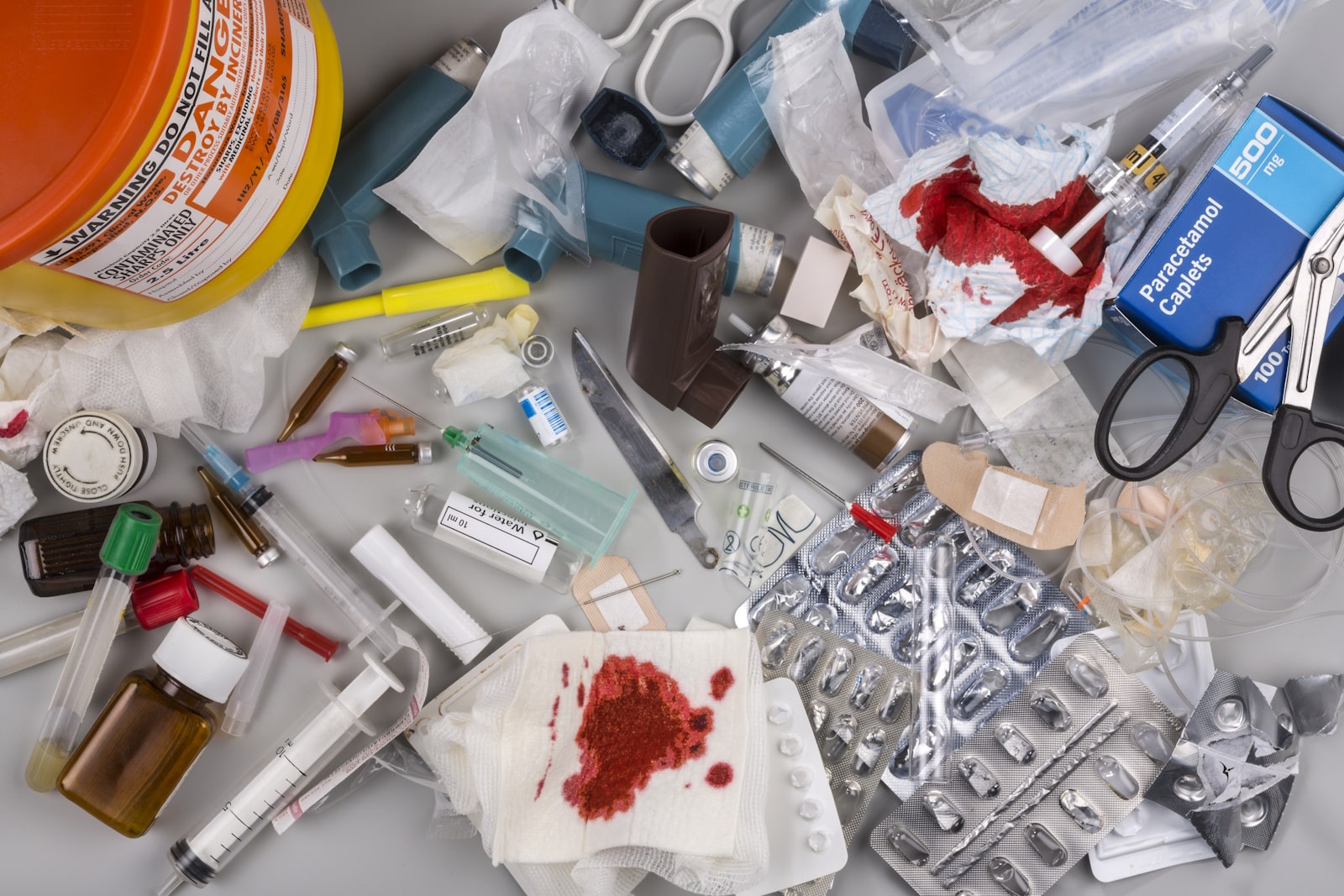Medical Waste Company: Disposing of Medical Waste
Medical waste is an ever-growing concern within the healthcare industry, especially in a world where hygiene, safety, and environmental responsibility are top priorities. Proper disposal and treatment of medical waste are crucial to ensuring public health and protecting the environment from contamination. As a trusted medical waste company, A-Thermal understands the importance of safe and effective disposal practices. In this article, we will explore the types of medical waste, the challenges associated with their disposal, and the best practices to follow.
Infectious Waste: Proper Handling and Disposal
Infectious waste is any material that has been contaminated with blood, body fluids, or other potentially infectious substances. This type of waste poses significant risks, such as the spread of diseases like HIV, Hepatitis, and various bacterial infections. Examples of infectious waste include blood-soaked bandages, used swabs, surgical drapes, and contaminated gloves.
To minimise the risk of infection, proper handling and disposal are essential. The first step is segregation—infectious waste should be separated from general waste using colour-coded containers (typically red). Containers should be puncture-resistant, leak-proof, and tightly sealed. The waste should then be treated using methods like autoclaving or incineration to neutralise any harmful pathogens before disposal. It’s essential to dispose of treated waste in sanitary landfills or specialised incineration facilities to avoid contamination.
Proper training for healthcare workers on waste segregation and handling is paramount to reducing the spread of infections.
Sharps Waste: Managing the Risks
Sharps waste refers to objects that can cut or puncture the skin, such as needles, syringes, scalpel blades, and lancets. The dangers of sharps waste are substantial due to the risk of needle-stick injuries, which can lead to the transmission of infections like HIV, Hepatitis B, and Hepatitis C.
The biggest challenge with sharps waste is safe disposal and, in some cases, recycling. Sharps must be placed in puncture-resistant containers to avoid accidents. These containers should be clearly labelled and designed to prevent any leakage. Although recycling sharps is a potential avenue, it is often limited due to contamination risks, meaning the most effective solution remains incineration or disposal in specially designed disposal bins.
To prevent injuries, healthcare workers must be adequately trained in safe disposal techniques, and it’s essential to use needle-stick injury prevention devices.
Pathological Waste: Ethical Considerations and Disposal
Pathological waste includes human tissues, organs, body parts, and body fluids, typically generated during medical procedures or surgeries. This type of waste is not only hazardous but also requires careful ethical considerations in its handling and disposal.
It’s crucial that healthcare facilities obtain informed consent from patients for the use or disposal of tissues. Ethical concerns regarding dignity and cultural beliefs must be respected. Many institutions work with ethics boards to ensure compliance with all legal and cultural standards before proceeding with the disposal of pathological waste.
Handling and disposal of pathological waste usually involves refrigeration to prevent decomposition before the material is treated by incineration or deep burial. Maintaining a record of all consents and disposal methods is vital for transparency and accountability.
Pharmaceutical Waste: Hazardous vs. Non-Hazardous
Pharmaceutical waste is a common by-product of healthcare services. It includes expired, unused, or contaminated medications, and it can be divided into two categories: hazardous and non-hazardous.
Hazardous pharmaceutical waste includes chemotherapy drugs, certain antibiotics, and controlled substances that can pose a risk to health or the environment. Non-hazardous pharmaceutical waste includes over-the-counter medications and vitamins, which are less harmful but still need to be disposed of responsibly.
Hazardous pharmaceutical waste must be segregated and stored in secure areas, away from the reach of unauthorised personnel. For disposal, hazardous waste is typically incinerated, while non-hazardous pharmaceutical waste may be sent to a landfill or disposed of through reverse distribution programmes.
The pharmaceutical sector generates a significant amount of waste. With the correct disposal practices, this waste can be handled safely, preventing harm to both the environment and human health.
Radioactive Waste: Safety Protocols and Storage
Radioactive waste is a specialised category of medical waste that includes materials contaminated with radioactive substances. This type of waste is generated by medical treatments, such as cancer therapies, as well as diagnostic procedures that involve radiology.
Due to its potentially harmful nature, radioactive waste requires strict safety protocols for storage and transportation. Radioactive materials should be stored in shielded containers to prevent exposure. For transportation, specialised vehicles equipped to handle radiation safely must be used. All storage facilities must meet stringent regulations to ensure the safety of staff, patients, and the environment.
The disposal of radioactive waste may involve allowing materials to decay over time or placing them in deep geological disposal sites. In all cases, the management of radioactive waste is highly regulated, and safety checks should be carried out regularly.
Effective Management of Medical Waste
From infectious waste to radioactive materials, each category presents unique challenges, but with the right knowledge and practices, these challenges can be met. It is essential for healthcare facilities to work with a reliable medical waste company that understands the importance of safe, compliant, and efficient disposal methods.
At A-Thermal, we are committed to providing the best solutions for the disposal of all types of medical waste. Our state-of-the-art facilities and expert team ensure that waste is handled with the utmost care and in compliance with South African regulations. As a trusted medical waste company, we pride ourselves on delivering the highest standards of safety and service to our clients.
If you need assistance with the disposal of medical waste, we encourage you to get in touch with us.







